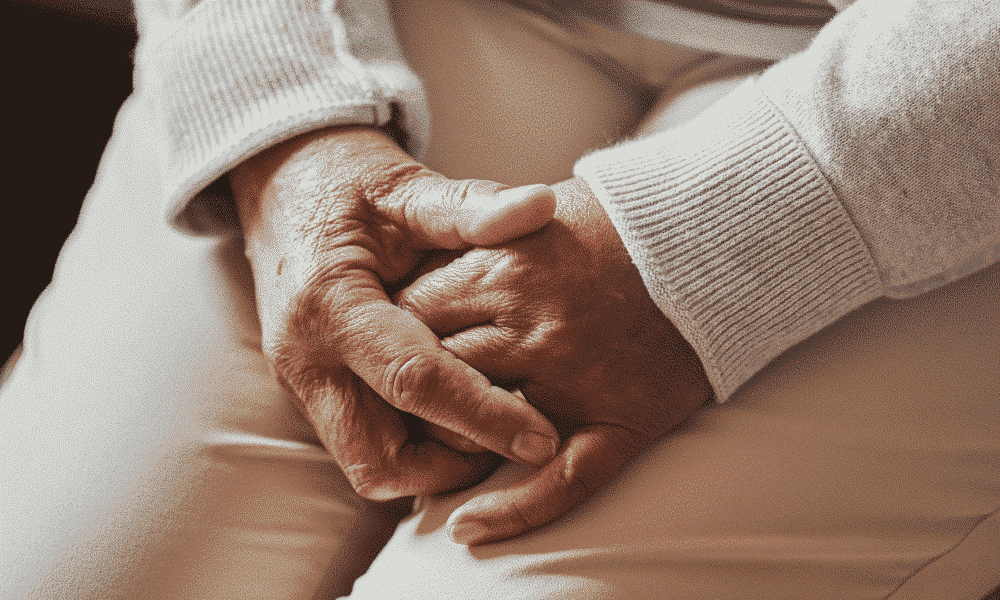When faced with a breast cancer diagnosis, it’s common to experience feelings such as fear, helplessness, despair, and even shame. These same feelings can linger well beyond therapy or recovery.
If you can identify with any of the above, know that you’re not alone. Your feelings are valid, and it’s okay not to be okay.
In fact, according to one scientific study, people with breast cancer are at higher risk for psychological distress than people diagnosed with other types of cancer. Nearly 42% of breast cancer patients reported experiencing at least one mental health disorder, the most common among these being anxiety, adjustment disorders, or depression.
For this reason, the importance of mental health support for people with breast cancer has become more recognized and is now a key part of treatment.
Understanding that your mind is dealing with breast cancer as much as your body will help you recognize the impact it has on your mental health. And understanding your condition better means that you’ll be more willing to ask for help.
Having access to the right support can help you cope better with the psychological burden of breast cancer.
Keep on reading to discover exactly how breast cancer impacts your mental health and how you can look after your mind throughout your journey.
How breast cancer affects your mental health
Living with a condition like breast cancer can affect your mental health in a variety of ways:
Breast cancer and its treatment cause physical changes in your body
These changes can be temporary, like increased sweating or hair loss, but may also be permanent, like removal of the breast, for example. These physical changes can cause self-doubt, identity struggles, reduced sex drive, and body image issues, all of which can affect your mental health. Check out this article to get a nurse’s perspective on how to cope with changes like these.
A breast cancer diagnosis often means that your life plans need to be put on hold
While this can be daunting, it’s important that you take enough time to devote yourself fully to your recovery. However, taking a break from your job or other pursuits can have a big impact as you deal with fears of no longer being able to practice your profession.
You may need to rely on others, creating new dynamics which can affect your relationships
The support of friends and family will be vital during this tricky time. Sometimes, it can be hardest to communicate with those closest to you. It may be that you don’t want to burden them or cause them to worry. Or perhaps there are some sensitive topics that you’re too embarrassed to discuss. A lack of communication can lead to feelings of isolation and negatively affect your mental health.
We know that this might sound a little scary. But understanding how breast cancer can affect you mentally is the first step to practicing self-compassion. Self-care and self-love are vital. So be kind to yourself if you find that breast cancer is taking a toll on your mental health.
How to recognize that you’re struggling
You are unique, and so is your experience with breast cancer. How you feel after your diagnosis is completely individual. There are no right or wrong feelings here.
Some people who have received a diagnosis at a relatively early stage with a good prognosis can still feel extreme stress. While others learn to appreciate the value of life through their experience with cancer and see it as a great learning experience.
However you feel is valid and justified.
If you feel like you’re suffering psychologically as a result of your breast cancer, acknowledging and accepting the problem is an important first step.
The following symptoms may be signs of anxiety and/or depression if they recur over a long period of time:
- Irritability, nervousness, and/or tension
- Difficulty concentrating
- Fatigue, loss of energy, and feelings of exhaustion
- Trouble sleeping
- Loss of self-esteem
- Avoiding social situations and/or social contact
- Sadness and helplessness
- Thoughts of death or suicide
- Feelings of guilt
- Doubts about the meaning of life
- Finding no joy in living
Individually, these symptoms may not always equal mental illness. For example, fatigue and exhaustion are common side effects of cancer treatments and don’t necessarily mean that you’re depressed.
However, try to be mindful of these symptoms and monitor your mental well-being. It helps to acknowledge your feelings and fears. Accepting how you feel will help you to cope better, so be sure not to suppress any of your feelings.
How to look after your mental health
Remember, you’re entitled to feel however you’re feeling when living with breast cancer. With this in mind, feel free to share your feelings openly with your loved ones and your healthcare team. Be sure to address your fears and ask for information about therapy procedures and side effects. Open communication can reduce uncertainties and worries and help you deal with breast cancer better.
If you feel that your anxiety or depression is becoming too difficult to manage, you can talk to your doctor about the possibility of psycho-oncological support throughout your breast cancer treatment.
You’re never alone, and the first step is asking for help.
Paying attention to the following factors can also benefit your mental health:
Physical activity and nutrition
A healthy lifestyle is important for your physical health and also supports your psychological well-being. Regular physical activity can help to reduce the symptoms of anxiety and depression. It can also help release more happy hormones in your body, like serotonin and dopamine.
A healthy diet plays an important role, too. Eating well can improve your intestinal flora in the long term, and the intestine is directly related to the psyche.
Time
Time may not heal all wounds, but it’s important that you take time to process and accept your breast cancer diagnosis. The physical changes that come with it also require time to accept.
You’ll need time to adjust to your new body and come to terms with your body image.
Try to avoid setting time expectations for when you need to feel good again. You may still feel uncomfortable even after a full recovery, and that’s absolutely okay too.
Distraction
Sometimes, constantly dealing with your situation and feelings is just too much and can cause levels of anxiety and worry to become unbearable. That’s why it’s a great idea to distract yourself from your breast cancer from time to time.
A movie night, a board game, or an evening with friends can give your body and mind a rest for a few hours. Why not try out that hobby you always meant to or treat yourself to a delicious meal?
Distract yourself with some self-love. You deserve it.
Resilience
In psychology, the word ‘resilience’ is used to describe the ability to adapt to challenging experiences. Resilience, therefore, plays an important role in dealing with breast cancer.
Resilience is a trait that can help you prevent the development of serious mental health issues, like depression, in the long run. The good thing is, that resilience can be learned.
Important aspects of resilience include self-responsibility, setting realistic goals, recognizing your own strengths and successes, optimism and self-regulation, a positive social environment, and creating a sense of purpose in your life.
Practicing daily mindfulness and gratitude can also have a long-lasting impact on your stress levels and overall well-being. At Sidekick, we recognize the powerful relationship between the mind and the body. You can read more about the positive effects of mindfulness right here.
Explore our other articles on breast cancer and find out how to improve your quality of life by engaging in regular physical activity, or discover how to make the most out of your breast cancer check-ups. And remember, it’s okay not to be okay.













